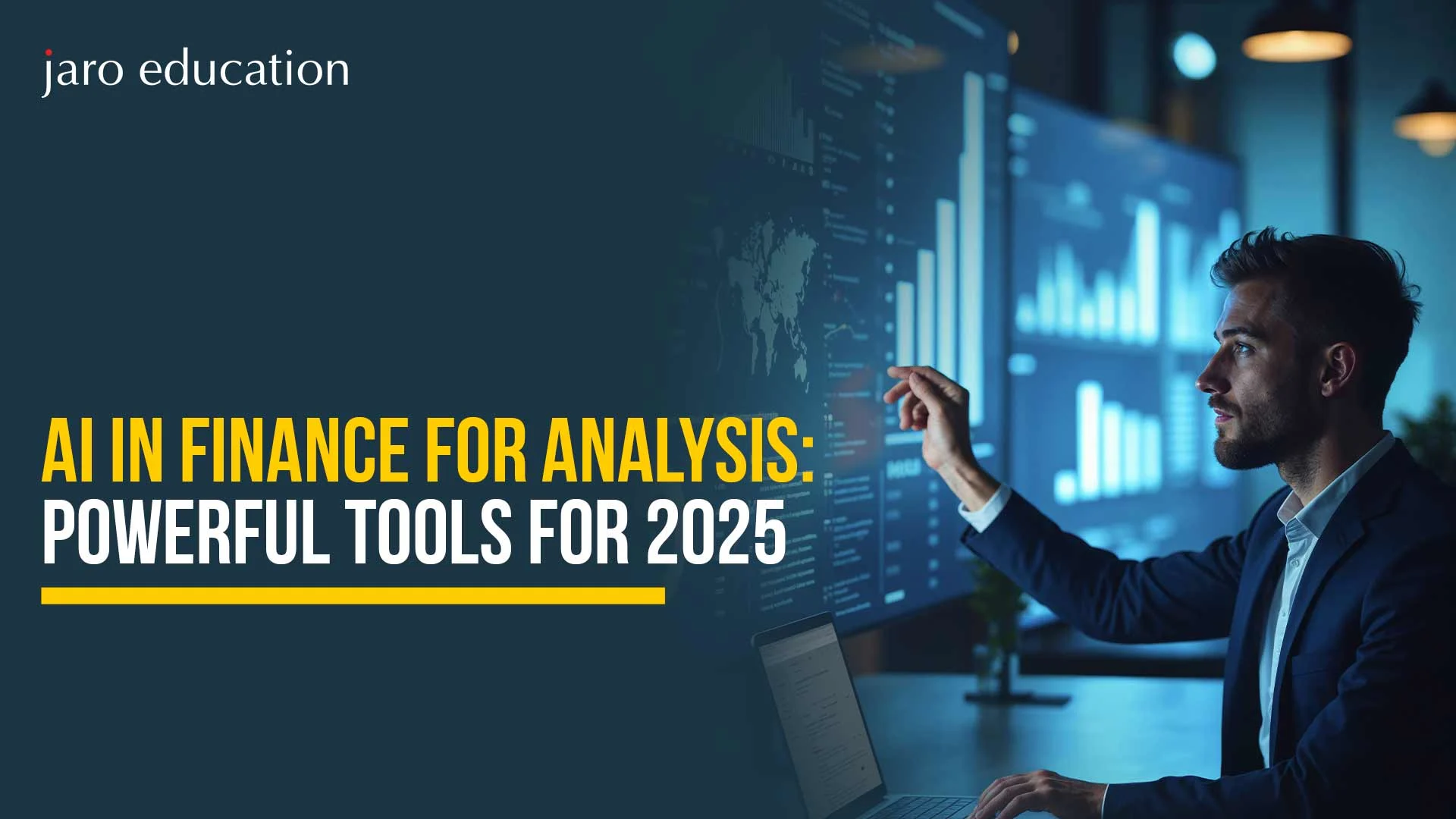AI in Finance for Analysis: Powerful Tools for 2026

Table Of Content
- Top 10 AI Tools for Finance in 2026
- AI in Financial Statement Analysis: Best Practices and Tips You Can’t Ignore
- Benefits of Using AI for Finance
- Final Thoughts
Top 10 AI Tools for Finance in 2026
AI in Financial Statement Analysis: Best Practices and Tips You Can’t Ignore
Benefits of Using AI for Finance
Final Thoughts
By 2026, the use of AI in finance will not only be here to support financial analysis; it will change financial analysis altogether. These AI in finance tools are providing unprecedented precision, speed, and power to everyone involved in financial analysis: analysts, auditors, accountants, and investors alike. The future of finance is fast, smart, and based upon vast amounts of data. If you are not using AI in your workflow, sorry, but you are missing the boat.
The tools you need will inform your transition. So, if you want to hone your financial acumen and gain a competitive edge, Jaro Education’s AI in finance courses offer a wealth of knowledge and expertise. We collaborate with leading institutions, and we help participants to gain access to a comprehensive curriculum that covers various aspects of finance. So, visit our website to explore our vast range of online courses and make a smarter financial decision for your business.
Frequently Asked Questions
AI in finance helps automate tasks, improve decision-making, enhance fraud detection, personalise customer service, and deliver predictive insights. It improves efficiency and accuracy across all financial functions—from risk assessment to portfolio management.
Yes, several institutions offer beginner-friendly AI in finance courses, including online programs through Jaro Education. These courses cover fundamentals of AI, machine learning, data analytics, and how they apply to financial services and decision-making.
Artificial intelligence in finance is used for automated credit scoring, fraud prevention, trading decisions, customer service (chatbots), regulatory compliance, and financial forecasting. It reduces manual errors and increases processing speed.
No. AI enhances human decision-making but doesn’t replace it. While it automates repetitive tasks and reveals data patterns, human analysts are still essential for interpreting results, applying judgment, and making final strategic decisions.
Find a Program made just for YOU
We'll help you find the right fit for your solution. Let's get you connected with the perfect solution.

Is Your Upskilling Effort worth it?

Are Your Skills Meeting Job Demands?

Experience Lifelong Learning and Connect with Like-minded Professionals











